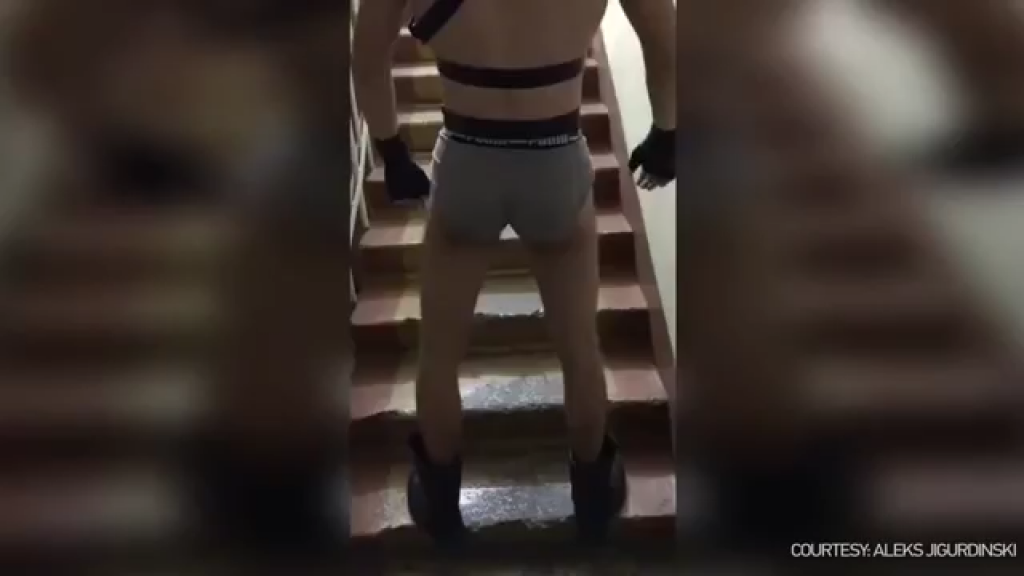The Jordan Center stands with all the people of Ukraine, Russia, and the rest of the world who oppose the Russian invasion of Ukraine. See our statement here.
This article originally appeared on Transitions on 6/23/2022.
Peter Rutland is a professor of government at Wesleyan University in Middletown, Connecticut.
What are the implications of the war in Ukraine for the future of Russia’s political system? How will it influence Vladimir Putin’s willingness to step down from the presidency – and the kind of person likely to replace him?
As a long-time scholar of the Russian political elite, I see few grounds for optimism about regime change anytime soon.
Prior to 2020, there was sporadic debate about who would succeed Putin when he reached the end of his second consecutive term in the presidency, in 2024. However, in 2020 Putin rewrote the constitution, allowing him to run again for two more six-year terms – until 2036.
Unfortunately, the launching of the brutal invasion of Ukraine makes it even less likely that Putin will voluntarily leave office. If the war had resulted in a quick victory, maybe Putin would have felt able to hand over power to his successor, confident that he had solved the challenge of NATO expansion into Russia’s backyard, and that he had restored Russia to the boundaries it had as of the year 1700.
However, with Ukraine fighting on, backed by military and economic aid from a united West, the war may grind on for many years. Putin will not want to exit the Kremlin while the war continues – not least because his successor would probably blame Putin for the geopolitical and economic mess that he inherited. That is how Nikita Khrushchev consolidated his grip on power in 1956, blaming Stalin for the political repressions and economic backwardness that were his legacy.
Although Putin’s public support had been fading, the Ukraine war has produced a modest rally around the flag effect. The ruthless repression of antiwar protests means that any chances for opponents to mount a systematic challenge to Putin in 2024 are doomed to fail. Moreover, the shift to all-electronic voting makes it even easier for the Kremlin to cheat to get the results they need.
Putin is 69 years old. There has been much speculation about the state of his health. All we know for sure is that he will die at some point: that could happen tomorrow, or it could be 25 years from now. Putin has made no move to groom a potential successor. Such a step could lead to a palace coup and an involuntary and premature departure from power. Putin has structured his regime in a way that makes a successful coup unlikely to succeed.
There is no established procedure in Russia for leadership succession. (If the president dies in office, according to the constitution the prime minister becomes acting president for three months, during which an election is held.) Presumably, when the time comes, Putin will name a successor and hand power to him very quickly – as did Boris Yeltsin in December 1999. It is possible that such a transfer of power would be challenged by rival elites: but that is unlikely, since no one wants to repeat the chaos of the 1990s. But if Putin were to die unexpectedly, there could be a chaotic interregnum. There is no authoritative collective body, such as the Politburo of Soviet times, to choose the next president. The Security Council would presumably step into that role.
In the meantime, politicians are maneuvering to be first in line when the time comes to pick a designated successor. The war increases the likelihood that a successor will come from the ranks of the security bosses, the siloviki – like Putin himself, who was appointed president in the midst of the second Chechen war. Defense Minister Sergei Shoigu is the second most popular politician in Russia after Putin, but his image was damaged by the poor performance of the Russian army in the assault on Kyiv. Also, at 67 he is too old to be anything other than a transitional leader. Likewise the two most powerful men after Putin – Nikolai Patrushev, secretary of the Security Council, and Aleksandr Bortnikov, head of the FSB security service – are both one year older than Putin. The average age of the Security Council members is 65: a generational change in the Russian leadership is long overdue.
Alongside the siloviki, Putin relies on a team of loyal but competent managers. Prime Minister Mikhail Mishustin has been keeping a low profile since the war began, in keeping with his image as a technocrat. In contrast, Sergei Kirienko and Dmitry Medvedev have jumped on the patriotism bandwagon. Kirienko, deputy chief of staff in the Kremlin, has been put in charge of the administration of occupied territories in Ukraine. In May in the destroyed city of Mariupol he opened a monument to the “Baba Anya” who greeted soldiers with a Soviet flag. In the 1990s Kirienko was a banker, a “liberal,” who briefly served as prime minister but resigned after the 1998 financial crash. He served as head of the Rosatom nuclear power agency (2005-2016) which presumably gave him a network of supporters in the defense industry.
Medvedev has also made a series of aggressively anti-Western public statements. Putin’s right-hand man since the early 1990s, Medvedev, 56, served as president and prime minister, and is now deputy chair of the Security Council. However, he does not appear to have many close supporters in the Russian elite and he is widely ridiculed in social media. Another ambitious politician who is playing the patriotism card is Vyacheslav Volodin, chairman of the State Duma.
Until he was appointed prime minister in August 1999, no one foresaw the elevation of Vladimir Putin to the presidency. Similarly, this time around it is also possible that Putin will pick someone from the security agencies who does not yet have a prominent public profile. What the 1999 succession taught us is to expect the unexpected.



